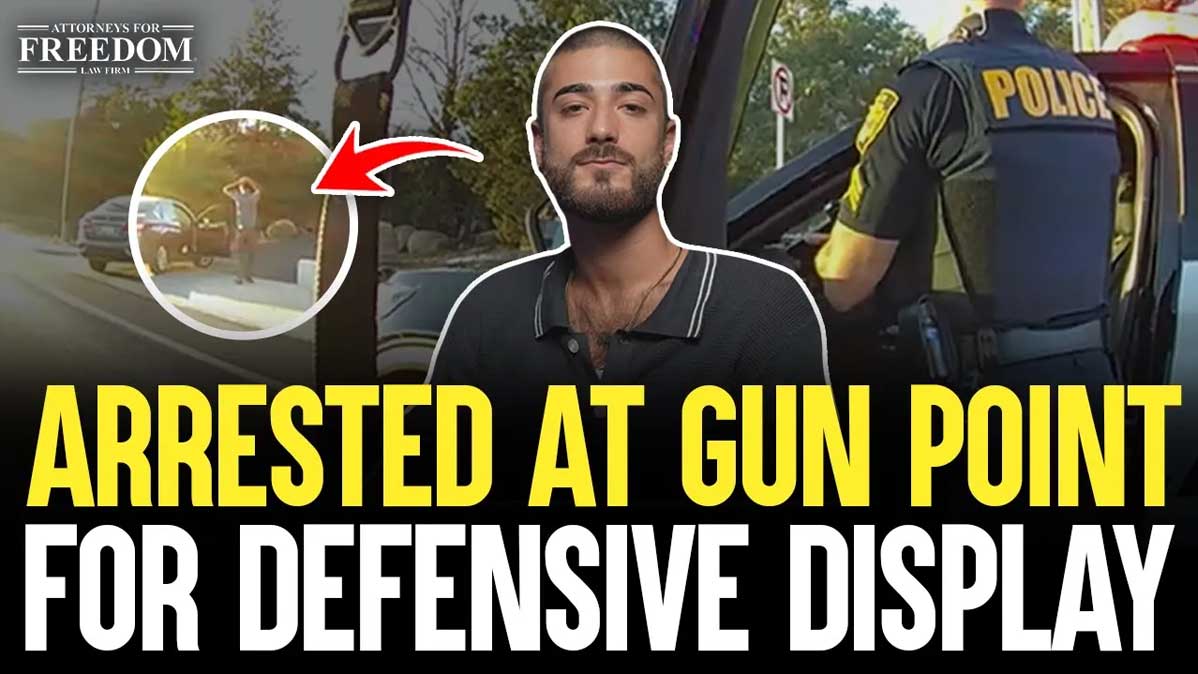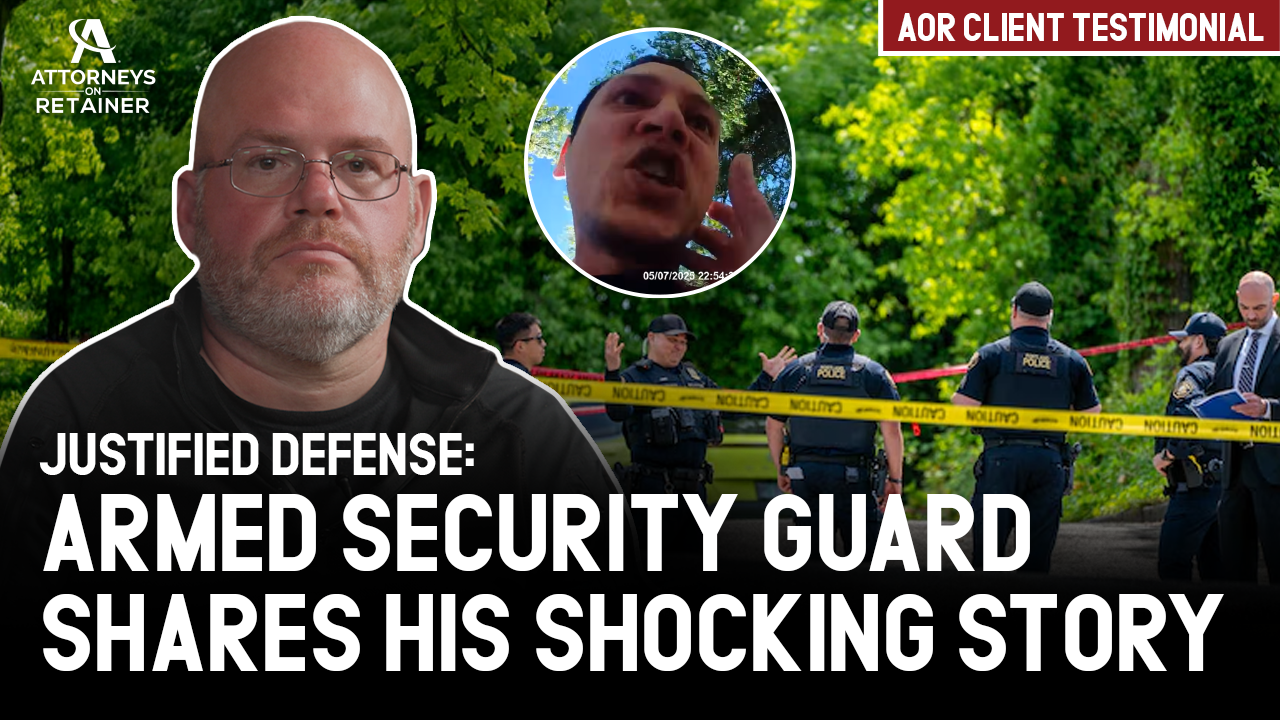Attorneys Marc J. Victor & Andy Marcantel Analyze USCCA’s Response to Deceptive Claims
December 28, 2023
The Attorneys On Retainer Program has been updated since this video was initially released. The program is designed with the same strengths as the original program, particularly its close affiliation with the only law firm in the United States working solely on self-defense cases, and this new program includes much more!
Introduction and Context
Criminal defense attorneys Marc J. Victor and Andrew C. Marcantel analyze a video released by Tim Schmidt, CEO of the United States Concealed Carry Association (USCCA). Mr. Schmidt’s video addressed allegations regarding USCCA’s self-defense protection program. The attorneys explain the nuances of a self-defense program backed by traditional insurance and explain why The Attorneys On Retainer Program (AOR) stands apart.
USCCA CEO’s Video Overview
Mr. Schmidt opened his video by rejecting what he called unjust criticisms, fraud, and half-truths. Although Mr. Schmidt did not mention AOR, he responded to critiques that align with those raised by AOR. The attorneys clarify that in their previous content, they made no untruthful or fraudulent claims about USCCA.
“We’re not trying to compare Attorneys On Retainer to USCCA . . . we’re doing our best to distinguish The Attorneys On Retainer Program from not just USCCA, but all of the other insurance backed programs. Because we’re a law firm and they are backed by insurance, and that’s a very important significant difference.”
– Attorney Victor
AOR Versus USCCA
The AOR Program is backed by a law firm. This means that clients deal directly with attorneys. With USCCA, an insurance model governs the process. This means insurance representatives determine whether an act qualifies as lawful self-defense before any trial takes place. AOR members receive immediate legal support without pre-approval hoops. Our goal is to defend people, not deny claims.
Contractual Limitations With USCCA
The attorneys highlight that USCCA excludes coverage for “any criminal act.” If an insurance plan excludes coverage for criminal acts, and the insurance company determines that an individual committed a criminal act, that individual could be left without legal representation, even if they had only been charged at that point. This undermines the presumption of innocence.
“To have an insurance company with a motivation to disclaim make a preliminary determination while the insured is presumed innocent is the very first problem.”
– Attorney Marcantel
Notably, if a member pleads guilty, USCCA may end its support. The attorneys emphasize that plea deals are often necessary and prudent. Clients are advised based on their unique situation. They explain that criminal defense is about minimizing harm.
“To be clear, sometimes it is definitely in the best interest of the defendant to go to trial, but how good your case looks at trial is directly proportionate to how good we expect that plea offer to be.”
– Attorney Marcantel
Another concern lies in USCCA’s control over attorney selection. The company can assign lawyers and impose billing restrictions. This creates a conflict between the member’s best interest and USCCA’s cost-saving measures. Additional exclusions, such as the use or possession of a firearm in violation of 18 U.S.C. § 922, could disqualify members from coverage. These exclusions further raise questions about the reliability of USCCA’s coverage.
Civil Defense Versus Civil Indemnification
USCCA provides indemnity coverage for civil damages, meaning it may cover costs if a member is found liable in a lawsuit. While this might seem beneficial, the attorneys emphasize that indemnification can drive lawsuits. Plaintiffs may be more likely to sue someone they know is backed by an indemnity policy.
“By offering to indemnify . . . USCCA is inviting a plaintiff to file a lawsuit against you where you would have otherwise had no resources to collect. So, you may have now just inadvertently ended up in an unnecessary civil suit and these things can drag on for years.”
– Attorney Marcantel
As of December 2023, AOR does not offer to pay a civil judgment on behalf of a member involved in a self-defense incident. The attorneys emphasize that they would defend civil cases vigorously, but they do not promise to pay a civil judgment. This discourages opportunistic lawsuits and keeps the sole focus on defending the member.
The Case of Kayla Giles and Alan Colie
Ms. Giles, a USCCA member, was convicted of murdering her husband. Despite her claim of self-defense being supported by her USCCA-appointed attorney, USCCA canceled her coverage before trial. The attorneys emphasize the importance of the presumption of innocence and assert that all defendants deserve competent representation that will vigorously defend that presumption of innocence.
Similarly, Alan Colie shot a YouTube prankster in a Virginia mall and was ultimately acquitted on self-defense grounds. While Mr. Colie was a USCCA member in good standing at the time of the incident, USCCA did not provide him with defense counsel, and as a result, Mr. Colie was represented at trial by a public defender. The attorneys reiterate that AOR would have unquestionably defended Mr. Colie if he were a client who in good faith acted or attempted to act in self-defense, even if he was in a so-called “safe space.”
Conclusion
The attorneys emphasize that choosing a self-defense program backed by traditional insurance should be a well-informed decision. Contracts should be read carefully, and clauses should be understood.
If you want reliable legal defense for self-defense cases without all the unnecessary exclusions, be sure to check our Attorneys On Retainer Program. For more information, please contact us by calling 866-404-5112 or emailing us.



